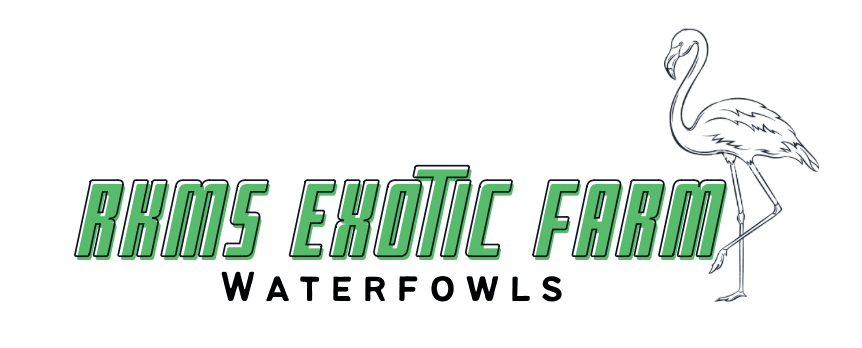Best Swan Farming Tips for Beginners
1. Choose the Right Breed of Swan
There are several breeds of swans available in the market, and each breed has unique characteristics and requirements. Before starting your swan farming venture, research and choose the breed that suits your goals and resources.
2. Prepare a Suitable Environment
Swans need a suitable environment to live and thrive. Ensure that the swan farm has a large water body, green vegetation, and proper shelter. The environment should also be free from pollutants and predators.
3. Ensure Good Water Quality
Swans require clean and fresh water to maintain their health and well-being. Ensure that the water source is free from pollutants, and the pH level is suitable for the swans.
4. Provide Adequate Food
Swans require a balanced diet that includes grains, vegetables, and protein. Ensure that you provide the swans with enough food to meet their daily nutritional requirements.
5. Maintain Proper Feeding Schedule
Swans need a regular feeding schedule to maintain their health and growth. Ensure that you feed the swans at the same time every day to prevent overfeeding or underfeeding.
6. Train Swans to Follow a Feeding Schedule
Swans can be trained to follow a feeding schedule by associating feeding time with a specific sound or action. This training will help the swans understand when it is time to eat.
7. Provide Proper Housing
Swans require proper housing to shelter them from harsh weather conditions and predators. Ensure that the swan housing is spacious, clean, and well-ventilated.
8. Keep the Housing Clean
Swans require a clean and hygienic environment to prevent the spread of diseases. Ensure that the swan housing is cleaned regularly, and the bedding is changed frequently.
9. Provide Suitable Nesting Material
Swans require suitable nesting material to build their nests. Ensure that the nesting material is soft, dry, and free from pollutants.
10. Monitor the Swans Regularly
Regular monitoring of the swans is essential to detect any health or behavioral issues. Ensure that you observe the swans daily and seek professional advice if you notice any abnormalities.
11. Provide Proper Lighting
Swans require adequate lighting to maintain their biological clock and behavior. Ensure that the swan housing has proper lighting that simulates natural daylight and darkness.
12. Provide Adequate Heating
Swans require adequate heating to maintain their body temperature during the winter months. Ensure that the swan housing has proper heating equipment that provides enough warmth.
13. Provide Suitable Swimming Area
Swans require a suitable swimming area to maintain their physical and mental health. Ensure that the swan farm has a large water body that allows the swans to swim and dive.
14. Protect Swans from Predators
Swans are vulnerable to predators such as foxes, raccoons, and birds of prey. Ensure that the swan farm has proper fencing and predator control measures to protect the swans.
15. Provide Proper Veterinary Care
Swans require proper veterinary care to prevent and treat diseases. Ensure that you have a veterinary expert who can provide regular health checkups and treatment when necessary.
16. Follow Biosecurity Measures
Biosecurity measures are essential to prevent the spread of diseases and parasites. Ensure that you follow proper biosecurity measures, such as disinfecting equipment, isolating sick birds, and preventing visitors from entering the swan farm.
17. Monitor the Water Quality Regularly
Water quality is essential for the health and well-being of swans. Regular monitoring of water quality parameters such as pH, dissolved oxygen, and temperature can help detect any changes that may affect the health of the swans. Ensure that you test the water quality regularly and take appropriate actions when necessary.
18. Provide Enrichment Activities
Enrichment activities such as toys, mirrors, and hiding places can provide mental stimulation and prevent boredom in swans. Ensure that you provide suitable enrichment activities to keep the swans engaged and active.
19. Practice Good Hygiene
Practicing good hygiene can prevent the spread of diseases and parasites in swan farms. Ensure that you maintain good hygiene by washing your hands, wearing appropriate protective clothing, and disinfecting equipment.
20. Learn About Swan Behavior
Understanding swan behavior can help you identify any abnormalities and prevent potential problems. Ensure that you learn about swan behavior and body language to detect any signs of stress, aggression, or illness.
21. Provide Adequate Space
Swans require adequate space to move around and exercise. Ensure that the swan farm has enough space to accommodate the number of swans and prevent overcrowding.
22. Practice Safe Handling Techniques
Swans can be aggressive and defensive, especially during breeding season. Ensure that you practice safe handling techniques such as wearing gloves, using a net, and avoiding direct eye contact.
23. Provide Suitable Breeding Conditions
Swans require suitable breeding conditions to reproduce successfully. Ensure that the swan housing and environment provide suitable nesting sites, suitable food, and suitable lighting to stimulate breeding behavior.
24. Learn About Swan Breeding Behavior
Understanding swan breeding behavior can help you identify potential problems and prevent breeding failure. Ensure that you learn about swan breeding behavior and seek professional advice when necessary.
25. Monitor Swan Breeding Behavior
Monitoring swan breeding behavior can help you identify potential problems and intervene when necessary. Ensure that you observe the swans during breeding season and seek professional advice when necessary.
26. Provide Suitable Egg Incubation Conditions
Swan eggs require suitable incubation conditions to hatch successfully. Ensure that the egg incubation temperature, humidity, and ventilation are appropriate for the species.



